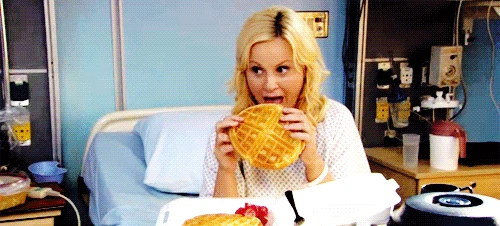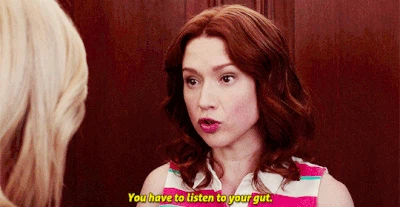“Listen To Your Body” Is Actually Great Health Advice
I’m ashamed to admit that I totally fell for Kellogg’s marketing mantra that “Breakfast is the most important meal of the day.”

I vaguely recall reading that line on the back of a cereal box as a kid, and, as a result, I’ve been a consistent breakfast-eater all my life.
The funny thing is, I didn’t even like eating breakfast because I usually don’t get hungry until around noon, and eating breakfast made me feel really full. But I knew breakfast was supposed to be “good for me” because it would give me “enough energy to start the day,” so I ate it anyway.

A few months ago, some people I knew started intermittent fasting or skipping breakfast altogether. Before, I thought it was lazy to skip breakfast. But when I started waiting to eat until noon, I felt so much better. I was less bloated and more awake and energetic.
Wading through the deluge of internet information on health science can feel overwhelming — from misleading marketing claims to contradictory studies from legitimate experts. Sometimes, personal intuition can go a long way in determining what’s best for your health.
“Science” Can Produce Many Bad Theories about Health Food
It seems like you could find a study or an article to justify almost any belief about health food. Biologist and science journalist John Bohannon proved that fact in 2015 when he purposefully published a scam “study” claiming that eating chocolate could help people lose weight.
The study was purposefully poorly-designed: Bohannon only recruited 16 individuals and measured too many factors, for example. It also wasn’t peer-reviewed by the journal that published it.
It seems like you could find a study or an article to justify almost any belief about health food.
And just as Bohannon expected, numerous journalists cited the study as legitimate research. They didn’t even attempt to consult outside experts who could affirm or critique the study’s findings. Many of those publications later published updates correcting the original claim after Bohannon revealed his study was an intentional scam.

Theories on Health Food Often Change
One day, everyone is touting a particular food item or ingredient, and the next day they’re bashing it — only to bring it back a decade later.
Milk is one example. During the 1900s, doctors believed that calcium intake in adults would prevent broken bones. But more recent studies show no decreased risk of hip fracture among either men or women who take calcium supplements. And a 2014 study even showed a greater risk of hip fracture among women.
Nevertheless, you can still find plenty of studies and articles touting the benefits of drinking milk as a source of calcium, Vitamin D, and protein. One study even says low-fat, fermented dairy products (like cheese or yogurt) can prevent heart disease.
Protein powder is another example. Although it’s easy to find research suggesting that protein powder can build muscle and aid weight loss, some experts point out that many protein powders include added sugars and calories, which can actually contribute to weight gain.
They also note that protein powders come with added risks, since they’re not regulated by the FDA and sometimes include harmful toxins. It’s often better, some experts suggest, to stick with protein from whole foods like poultry, fish, eggs, low-fat dairy, nuts, and legumes.
One day, everyone is touting a particular food item, and the next day they’re bashing it.
And just like the Kellogg’s breakfast scheme, a lot of health misinformation stems from misleading marketing. One protein powder company, which marketed its product as the “Arnold Schwarzenegger Series Iron Mass,” was actually sued for containing only half the protein it claimed to contain. A third-party firm found that protein powder companies cut costs by substituting free form amino acids and representing them as grams of protein on the label.
Listen to Your Body
It’s good to listen to experts, but sometimes experts get it wrong. It’s always good to make sure you listen to your own body, especially because everyone has a different body type, activity level, and dietary needs.
It’s good to listen to experts, but sometimes experts get it wrong.
“Listen to your body” doesn’t mean “eat sugar and junk food whenever you feel like it.” If you really listen to your body, instead of just following habits and random impulses, you’ll start to sense what kind of food your body needs, when you need to eat more/less, or what kind of exercise is best. For me, listening to my body meant waiting to eat until I’m actually hungry, not just eating out of habit or because someone told me I should.
Even experts don’t know everything, and sometimes doctors give bad health advice. If your doctor tells you there’s nothing wrong with you, but you’re certain there is, see if you can get a second opinion. Doing so has saved lives in cases where the first doctor failed to diagnose them for cancer or another serious condition.

Closing Thoughts
When it comes to health, it’s good to take an expert’s advice and read as much as you can. But science and research are always changing, and you shouldn’t disregard common sense and personal intuition when determining what’s good for your health.